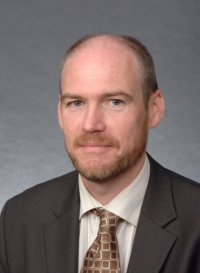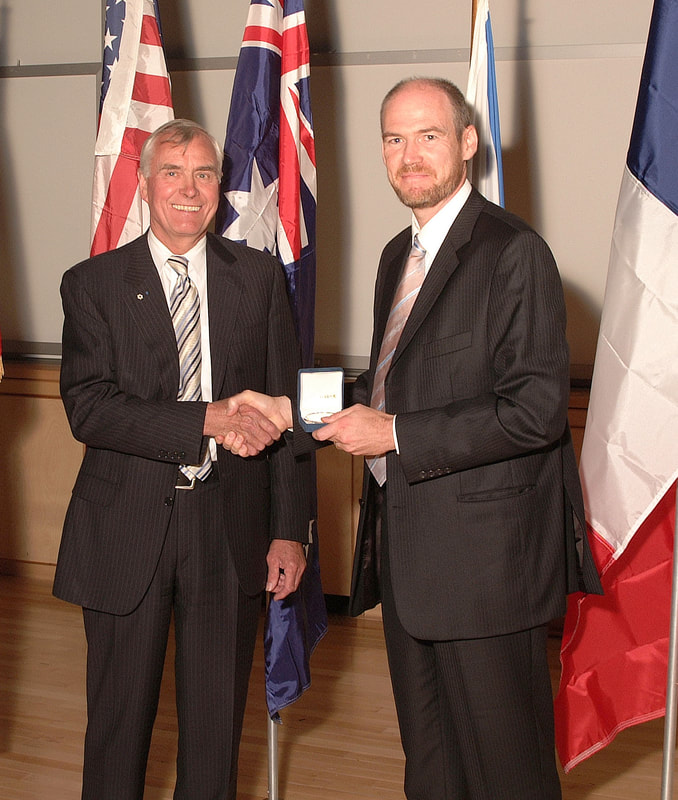2005 EDOUARD BARD
|
Dr. Edouard Bard of the Université d'Aix-Marseille and Collège de France, for his significant contributions to isotopic dating and proxy thermometry techniques and their application to studies of the Earth's paleoclimate and, in particular, its ice-age climate and sea level dynamics.
Dr. Bard is a Professor and Chair of Climate and Ocean Evolution at the Université d'Aix-Marseille and the Centre Européen de Recherche et d'Enseigements des Géosciences de l'Environnement, and Professor of the Collège de France in Paris. He holds an M.Sc. in Geological Engineering and Applied Geochemistry from the University of Nancy and a Ph.D. in Isotope Geochemistry from the University of Paris. Dr. Bard is a Fellow of the American Geophysical Union (AGU) and the Geological Society of America (GSA), a recipient of the AGU Macelwane Medal, the GSA Donath Medal and the Bronze Medal of the Centre National de la Recherche Scientifique, and he has been elected to the prestigious Collège de France as a full professor. Dr. Bard works at the interface of geology, oceanography and climatology. He is a world-class expert in developing and using modern geochronology techniques to measure and date paleoceanographic variations, particularly the relatively-rapid but difficult-to-measure changes associated with glacial periods. Dr. Bard's work in calibrating the radiocarbon time scale using high-precision measurements of uranium and thorium in fossil corals has led to important advances in each of paleontology, oceanography and archaeology. His work on radiocarbon dating has made possible detailed insights into deglaciation processes and sea level variability. Together, these advances have provided important new knowledge concerning the complex interactions within the ocean-atmosphere-cryosphere system, particularly during the last ice age. Dr. Bard's work in determining the relations between carbon and beryllium isotopes has provided the basis for interpreting paleovariations in atmospheric carbon, ocean sedimentation, ice cores and solar activity. His use of alkenone thermometry has advanced the reconstruction of paleotemperature and paleoproductivity variations from ocean sediments, particularly for mid- and low-latitude ocean regions. In merging the "eye" of the geologist with the quantitative rigour of the "actualistic" climatologist, Dr. Bard is a leader in global change science. |


